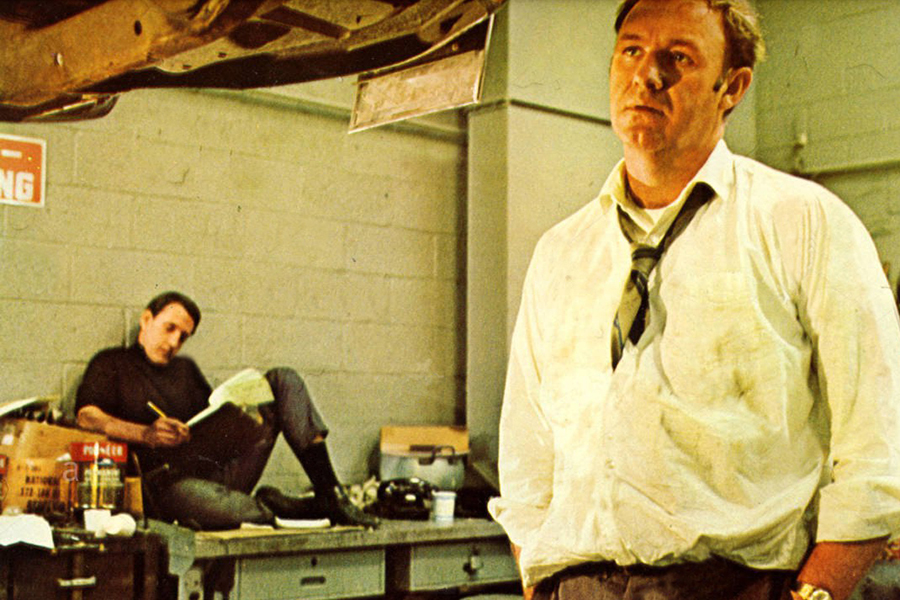The French Connection
June 6, 2023
Reports began circulating in the past few days that a few seconds of dialogue have disappeared from digital versions of 1971 Best Picture Oscar winner The French Connection available at digital retailers and streaming services.
The scene in question takes place just shy of the 10-minute mark, as Gene Hackman’s Popeye Doyle character encounters his partner in the police station and chides him for getting stabbed by using several racial slurs, including the ‘N’ word.
The excision was first noted in a copy playing on the prestigious Criterion Channel over the weekend, and reported by the Hollywood Elsewhere blog. Other users then started checking copies of the film stored on their DVRs from cable airings, and came to the conclusion the censored version began making the rounds more than four months ago.
I checked my copy on Vudu and, sure enough, the scene is missing there too without a trace aside from the very bad edit used to remove it.
With so many outlets now presented this edited version of the film, pundits quickly concluded that the culprit is probably not any of the streaming services, networks or retailers showing the film, but that it was cut by the distributor.
That would seem to point the finger at Disney, which obtained the rights to the film when it purchased the 20th Century Fox studio assets in 2019.
As of June 6, the studio had yet to chime in on the controversy, or to confirm if the scene is missing because of a mistake in the distribution master copy or if the scene was deliberately removed so as not to inflame modern audiences who are too easily offended by the harsh realities of human history or existence in general.
Nor has anyone heard from the film’s director, William Friedkin, who won an Oscar for his work on the film, a gritty story about a racist New York cop in pursuit of a wealthy French heroin smuggler.
In addition, it doesn’t appear the bowdlerized version of the film is being presented with a disclaimer indicating material has been removed. The usual M.O. for studios nowadays, Disney included, is to tag older films and TV shows with warnings about sensitive material that reflects the times they were produced. No such warnings have been appended to French Connection either.
Whatever the particulars, I’m sure they’ll get sorted out in the next few days, but it’s not a great look for Disney, which is already dealing with the fallout from a string of recent controversies and decisions that put it in the culture war crosshairs. Even if the censorship wasn’t purposeful, it doesn’t reflect well on the 100-year-old studio’s ability to preserve the legacy of the assets under its purview, particularly when they come from an acquired studio. (Compare this with Warner Bros., which has been actively counting MGM movies it now owns as among its own 100-year history of film production).
God forbid Disney ever gets its hands on Blazing Saddles.
Needless to say, censorship to art like this, if purposeful and without the involvement of the original artist, is wrong. Yet we seem to be living in a zeitgeist in which 1984-style campaigns against objective realities seem to be all the rage — with ample reports of literature being rewritten by publishers so as not to expose new readers to the contexts in which they were originally written. A society can’t measure its growth if the touchstones for comparison are erased from history.
The bottom line to all of this, of course, is how it points to the fickle nature of digital so-called “ownership” if the source files can be so easily manipulated. For content you love — the cherished movies, TV shows and music that are ingrained in our pop culture history — there simply is no substitute for physical media.
No studio exec or overzealous intern can change the content on the hard copy on your shelf. Whether they screw how the disc is made is another issue, but at least they can’t just erase it and pretend the things they don’t like never happened.
